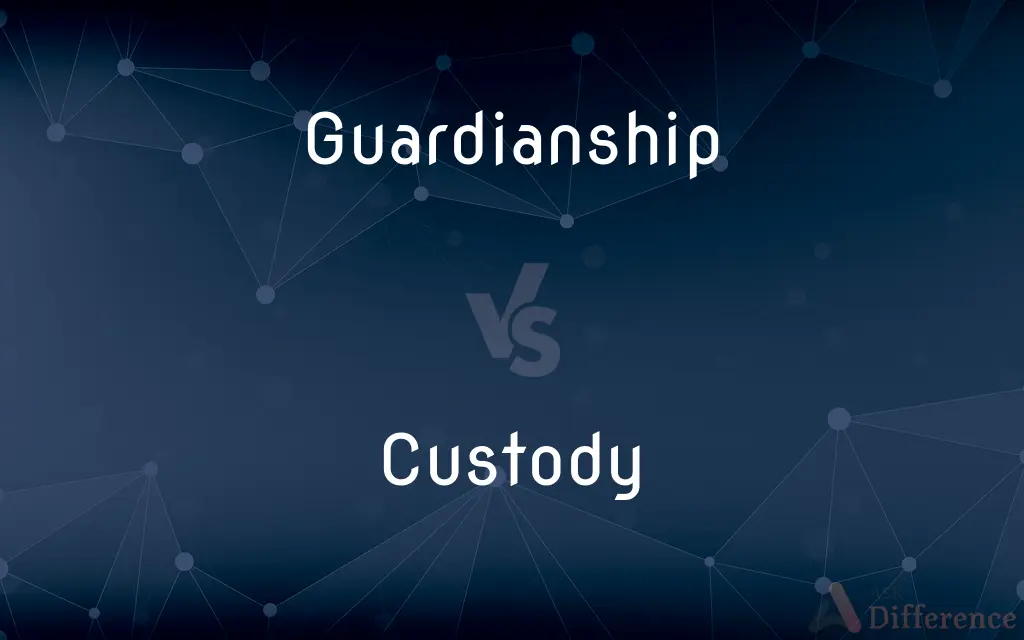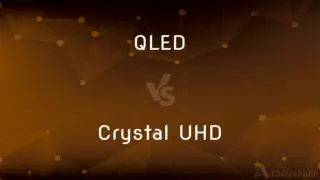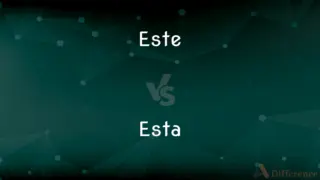Guardianship vs. Custody — What's the Difference?
By Maham Liaqat & Urooj Arif — Published on February 26, 2024
Guardianship grants an individual the authority to make decisions for another, often in broad aspects of life, while custody typically refers to the legal right to care for and make decisions about a child's upbringing.

Difference Between Guardianship and Custody
Table of Contents
ADVERTISEMENT
Key Differences
Guardianship is a legal relationship established by a court in which one person, the guardian, is given the authority to make decisions on behalf of another, the ward, who is unable to make decisions for themselves due to reasons like minority, incapacity, or disability. Guardianship can cover various aspects of the ward's life, including financial, medical, and personal decisions, depending on the court's determination.
Custody, on the other hand, is more commonly associated with the rights and responsibilities regarding the care and upbringing of a child. In the context of family law, custody can be divided into physical custody, which pertains to where the child lives and the day-to-day care, and legal custody, which involves the right to make significant decisions about the child's life, such as education, healthcare, and religious upbringing.
Guardianship can be applicable to both minors and adults who are deemed incapable of managing their own affairs, while custody typically refers to arrangements made for children, particularly in cases of divorce or separation of the parents. Custody arrangements are made with the child's best interests in mind and can be either sole, where one parent has primary responsibility, or joint, where both parents share responsibilities.
The process of establishing guardianship involves a court proceeding where it must be proven that the individual requires a guardian to manage their affairs. Custody, especially in the case of a parental divorce or separation, is also determined through legal proceedings, where the court considers various factors to ensure the welfare of the child.
Both guardianship and custody are subject to legal oversight, and the guardian or custodial parent must act in the best interests of the ward or child. The court retains the authority to modify or terminate these arrangements if they are no longer in the best interests of the individuals involved.
ADVERTISEMENT
Comparison Chart
Applicability
Minors and incapacitated adults
Primarily minors (children)
Scope
Broad (financial, medical, personal)
Child's care and upbringing
Legal Process
Court establishes guardianship
Court determines custody in family law context
Decision-making
Guardian makes decisions for the ward
Custodial parent(s) decide for the child
Duration
Can be temporary or permanent, based on need
Often until the child reaches adulthood
Compare with Definitions
Guardianship
A legal mechanism granting authority to manage affairs of another.
The court appointed a guardianship for the elderly man to ensure his well-being.
Custody
The legal right to care for a child and make decisions about their life.
After the divorce, joint custody was granted to both parents.
Guardianship
The responsibility to care for someone unable to manage their own affairs.
She took on the guardianship of her niece after her sister's passing.
Custody
Legal custody involves decision-making about the child's upbringing.
Despite their separation, they shared legal custody of their son.
Guardianship
The protective role over someone's personal and financial matters.
Guardianship involves making critical medical decisions for the ward.
Custody
Physical custody determines where the child lives.
She was awarded physical custody, so the children primarily lived with her.
Guardianship
The authority to make legal decisions on behalf of another.
Under the guardianship, she managed both his estate and healthcare decisions.
Custody
The responsibility for a child's daily care and welfare.
His custody of the children meant balancing work with their school and activities.
Guardianship
A court-ordered relationship for those incapable of self-care.
Guardianship was established due to his severe cognitive impairments.
Custody
A court-determined arrangement post-divorce or separation.
The custody agreement outlined specific visitation schedules.
Guardianship
The office or position of one acting as a guardian or conservator, especially in a legal capacity.
Custody
A keeping or guarding; care, watch, inspection, for keeping, preservation, or security.
A fleet of thirty ships for the custody of the narrow seas.
Guardianship
One who is legally responsible for the care and management of the person or property of an incompetent or minor.
Custody
The control and care of a person or property, especially when granted by a court.
An adult who was given custody of the child.
Custody
The legal right to take care of something or somebody, especially children.
The court awarded custody to the child's father.
The mother gained custody of the children.
Common Curiosities
Can guardianship and custody coexist for the same child?
Yes, in cases where a child's parents are unable to care for them, a guardian may be appointed while the parents retain some custodial rights.
How does joint custody work?
In joint custody, both parents share the responsibilities and decision-making for the child, though the child may primarily reside with one parent.
Can a custodial arrangement be changed?
Yes, custodial arrangements can be modified by the court if there's a significant change in circumstances affecting the child's best interests.
Who can be appointed as a guardian?
A guardian can be a family member, friend, or professional guardian, as determined by the court, based on the ward's best interests.
Is guardianship permanent?
Guardianship can be temporary or permanent, depending on the ward's needs and the court's determination.
What rights do non-custodial parents have?
Non-custodial parents typically retain visitation rights and may have legal custody rights, allowing them to make decisions about the child's upbringing.
What role do state laws play in guardianship and custody cases?
State laws govern the procedures and requirements for establishing guardianship and custody, with variations in definitions, processes, and considerations across states.
How is custody determined in a divorce?
Custody is determined based on the child's best interests, considering factors like parental involvement, the child's needs, and the home environment.
Can guardianship be contested?
Yes, guardianship can be contested by family members or the ward themselves if they believe the guardianship is unnecessary or the guardian is unfit.
How does a court decide on the best interests of a child?
The court considers multiple factors, including parental preferences, the child's relationship with parents and siblings, and the stability of the home environment.
Can a guardian receive compensation?
Guardians may receive compensation for their duties, subject to court approval and oversight, especially in professional guardianships.
Does guardianship affect a child's inheritance?
Guardians manage the child's present needs; a separate conservatorship might be established for managing a child's inheritance or substantial assets.
What happens to guardianship when the ward becomes an adult?
For minors, guardianship typically ends when they reach adulthood unless they are incapacitated, in which case it may continue as determined by the court.
How can disputes in custody or guardianship be resolved?
Disputes can be resolved through mediation, negotiation, or court intervention, focusing on reaching an agreement that serves the best interests of the child or ward.
Are there alternatives to guardianship for adults?
Yes, less restrictive alternatives include powers of attorney, health care proxies, and living trusts, which allow individuals to designate decision-makers without full guardianship.
Share Your Discovery

Previous Comparison
QLED vs. Crystal UHD
Next Comparison
Este vs. EstaAuthor Spotlight
Written by
Maham LiaqatCo-written by
Urooj ArifUrooj is a skilled content writer at Ask Difference, known for her exceptional ability to simplify complex topics into engaging and informative content. With a passion for research and a flair for clear, concise writing, she consistently delivers articles that resonate with our diverse audience.
















































